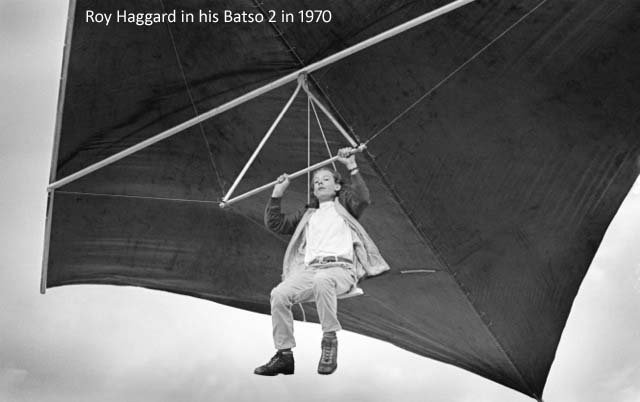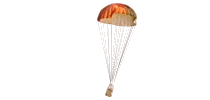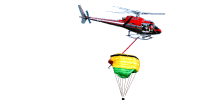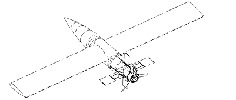 Chief Executive Officer: Roy A. Haggard, founder and owner of T3B, Inc., provides management oversight
for all engineering, fabrication and test activities. Roy has extensive experience in aircraft, parachute and inflatable structure design
and production. Since 1970 he has contributed significant technical innovations related to un-manned air vehicles (UAVs), designed, fabricated
and test flown over 50 original aircraft, and holds several aircraft and parachute patents. Roy’s technical expertise and guidance has
steered companies to industry leadership in inflatable, aeronautical and parachute technologies, including the first Mid-Air-Retrieval services
for the space industry.
Chief Executive Officer: Roy A. Haggard, founder and owner of T3B, Inc., provides management oversight
for all engineering, fabrication and test activities. Roy has extensive experience in aircraft, parachute and inflatable structure design
and production. Since 1970 he has contributed significant technical innovations related to un-manned air vehicles (UAVs), designed, fabricated
and test flown over 50 original aircraft, and holds several aircraft and parachute patents. Roy’s technical expertise and guidance has
steered companies to industry leadership in inflatable, aeronautical and parachute technologies, including the first Mid-Air-Retrieval services
for the space industry.
Tech for which Roy is known includes
UAV Recovery Systems: Managed several programs which designed parachute recovery systems for UAVs, ranging in payload from 60 to 600 lbs. Systems included round and ram-air parachutes, rocket-deployed and pilot chute-deployed parachutes.
UAV Experimental Pilot: Conducted initial flights on a variety of UAVS ranging from a 10-pound rotary wing to a 1,650-pound flight-test vehicle. Ability to conduct flight-tests from ground-based control stations or from chase aircraft. HDT Global
Inflatable Wing UAV: Conceived and developed inflatable wing spars using Vertigo’s patented design of HIGH STRENGTH INFLATABLE AIRBEAM STRUCTURES IN UAVs. While descending under parachute, the UAV demonstrated midair inflation of the wings, followed by successful flight.
Parafoil Mid-Air Retrievals: Returned solar wind particle samples to Earth from space, Project Engineer for the design, development and testing of a Parafoil Mid Air Retrieval System using a helicopter as a retrieval vehicle for the NASA/JPL Genesis Discovery Mission. Prime contractor Lockheed-Martin. Prototype demonstrated at Yuma Proving Grounds Here's a video example of Mid-Air Retrieval Tests for the ARCTUS Spacecraft.
Ejection Seat Aerostabilizer: Designed, fabricated and wind tunnel-tested inflatable booms which stabilize a pilot's ejection seat in yaw, after the seat has cleared the rails and before the drogue chute has deployed. Boom inflates in 40 milliseconds to 300 psi.
LARA Hang Glider/Paraglider Reserve Parachute: Designed this patented parachute for the unique needs of hang glider and paraglider emergencies. Achieved highest drag coefficient of any round reserve parachute tested by Naval Air Warfare Center in China Lake, CA. Currently manufactured under license by Free Flight Enterprises of Lake Elsinore, CA.
Magic Carpet: For clearing buried anti-personnel mines on beaches, designed a netted array of shaped charges, packed into a UAVs fuselage. Over the target area, the net array is deployed and a series of expansion devices spreads the net to 316 ft. by 160 ft. Once the net settles on the beach, its charges detonate and explode buried mines to explode, making it safe for troops to land on the beach. Demonstrated on a 1/5-scale model.
Mid-Air Retrieval System: Designed and demonstrated a system which permits capture of UAVs descending under parachute, instead of ocean landings. This system reduced turn-around time between flights from 24 hours to 6. A two-tiered parachute system and load network are deployed from the UAV, the upper parachute is captured by a boom-supported hook behind the helicopter.
Inflatable Structures: Developed technology to build and deploy transportable aircraft hangars and shelters. Beams inflate to any specified shape, and capable of withstanding wind and point loads required by military specifications. Fiber-reinforced elastomeric composite structures such as STAT AirBeam Shelter for US Army or NASA’s X-24 technology demonstrator. HDT Global
Shipboard Recovery Operations: Led development and demonstration of a program which outfitted a commercial tugboat with a helicopter deck, recovery winch and two flight test vehicles with parafoil recovery systems. Flight tests commenced 3 weeks after program start and culminated with successful winch-down and free-flown recoveries near the coast of Santa Rosa Island, CA.
Hang Glider Designer and Pilot: Designed, test flew and developed 41 hang gliders which went into production. 27 were certified to H.G.M.A. standards. The most significant design was the Comet, of which nearly all hang gliders today are a derivative.
NASA - JPL Phoenix Mission Mars Lander Radar Testing : Conception, design and development of a CNC-controlled hydraulic winch, hoist and braking system. This helicopter-borne equipment allowed repeated descent testing of radar at Mars entry velocities, making it possible for NASA and JPL engineers to fine tune the performance of their radar landing array.
Publications
“Parachute Retraction Soft-Landing Systems Using Pneumatic Muscle Actuators”, AIAA 16th Guidance, Navigation and Control Conference, AIAA-2000-4308, August 2000
“A New Pneumatic Actuator and Its Use in Airdrop Applications”, AIAA 15th CEAS/AIAA Aerodynamic Decelerators Systems Technology Conference, AIAA No. 99-1719, June 1999
“ The Affordable Guided Airdrop System (AGAS)”, AIAA 15th CEAS/AIAA Aerodynamic Decelerators Systems Technology Conference, AIAA No. 99-1742, June 1999
“ Parafoils for Shipboard Recovery of UAVs”, AIAA 11th Aerodynamic Decelerator Systems Technology Conference, AIAA-91-0835, April 1991
“ Demonstration of a Parafoil Based Mid-Air Retrieval System for an Unmanned Air Vehicle”, AIAA 11th Aerodynamic Decelerator Systems Technology Conference, AIAA-91-0836, April 1991
PATENTS
Aerodynamically Controlled Grapple Assembly, US 20130299634 A1, Issued November 14, 2013
Aerodynamically Controlled Grapple Assembly, US 8485469 B2, Issued July 16, 2013
Aerodynamically Controlled Grapple Assembly, US 20110254301 A1, Issued October 20, 2011
Parafoil Mid-Air Retrieval, US 6824102 B2, Issued November 30, 2004
Parachute Soft Landing System , US 06050524, Issued April 18, 2000
Inflated Wing, US 06082667, Issued July 4, 2000
Low Aspect Ratio Parachute, US D358362 S. Issued May 16, 1995
Inflatable Structure Paraglider, US 5,244,169 A. Issued September 14, 1993
Certifications and Licenses
| FAA: | Private Helicopter |
| FAA: | Private Single Engine Land Airplane |
| FAA: | Private Glider |
| United States Ultralight Association: | Ultralight Aircraft Pilot |
| United States Hang Glider Association: | Advanced Hanglider Pilot |
| United States Hang Glider Association: | Advanced Paraglider Pilot |
| United States Parachuting Association: | C License |
| SCUBA Schools International: | Advanced Diver with Rebreather Certification |
Honors and Awards
NASA – JPL Group Achievement Awards were presented to his company's team for three missions
2009 NASA Recognizes Vertigo, Inc. for its contributions as members of the Mars Phoenix Lander Entry, Descent and Landing Team
2009 Induction into the Rogallo Foundation Hall of Fame as 13th person to receive this honor
2006 Awarded “Associate Fellow Status" in the American Institute of Aeronautics and Astronautics Decelerator Technical Committee
1983 Guest Lecturer: Cal Poly Pomona: Subject: “Load Estimation, Design and Static Load Testing Procedures for Ultralight Aircraft”
1980 Guest Lecturer at Orange Coast College, Subject: “The Evolution of the Modern Hang Glider”
United States Hang Glider Association “Ed Gardia Award” for the “Design Innovations such as the Comet Hang Glider and the Arrow Ultralight Sailplane”
1975 Placed 3rd in World Championships of Hang Gliding
 1975 Placed 1st in International Rocky Mountain Hang Gliding Competition
1975 Placed 1st in International Rocky Mountain Hang Gliding Competition
Professional Associations
AIAA Decelerator Technical Committee Member
ASM Member
SAFE Member
SAMPE Member
Past Member, Screen Actors Guild. Worked primarily as a stunt pilot flying hang gliders and ultralights. Developed stunts, gear and safety measures. 12 screen credits.




